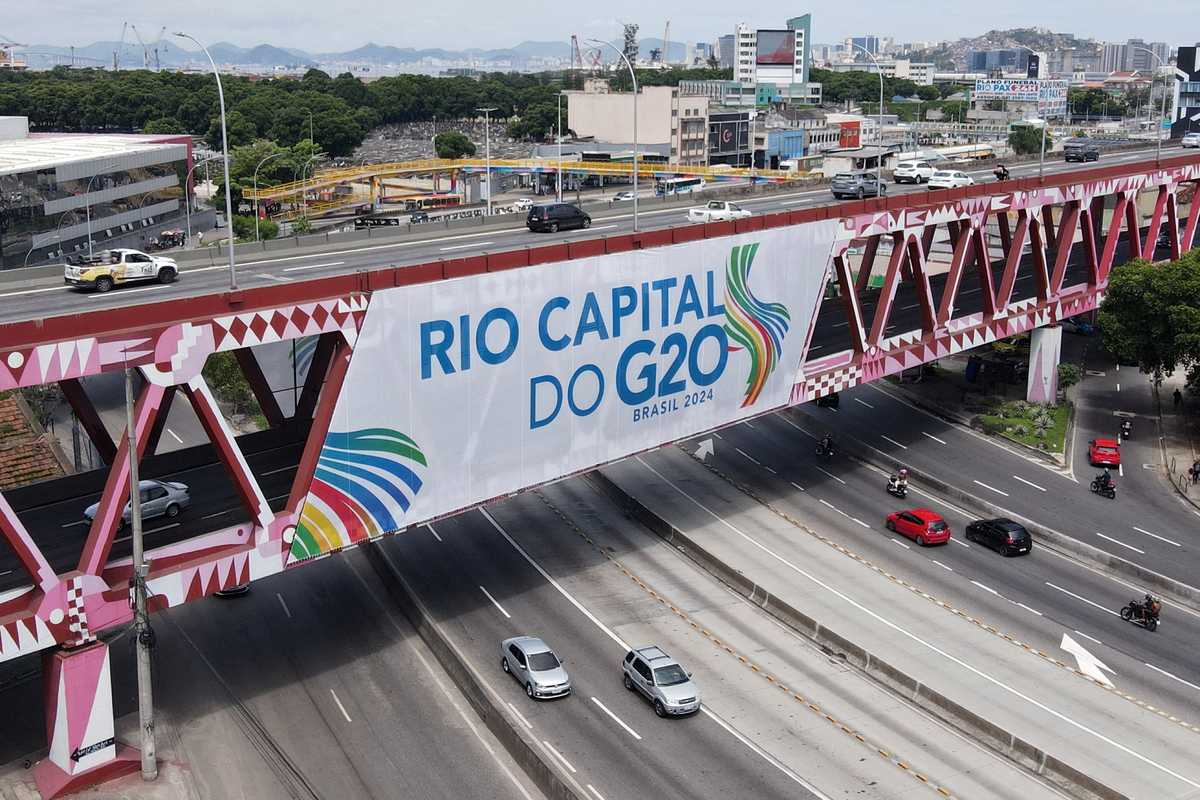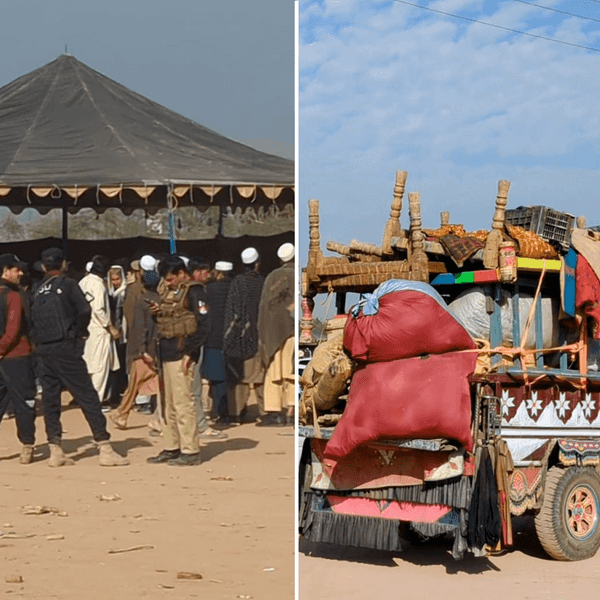G20 leaders flag global conflicts, cooperation at Rio summit
Leaders express deep concern over humanitarian situation in Gaza, call for aid and protection for civilians
Reuters
News Agency Partner
Reuters is a leading source of news and information, delivering fact-based reporting and expert analysis on international events and trends.

A drone view shows a banner on a bridge ahead of G20 Summit in Rio de Janeiro, Brazil November 17, 2024.
Reuters
Discussions on trade, climate change, and security to face challenges from Trump's policies
Leaders reach consensus on Ukraine conflict, focus on human suffering and economic fallout
Joint statement addresses need for new financial goal for climate finance
Leaders from the Group of 20 major economies on Monday issued a joint statement highlighting the suffering caused by conflicts in Gaza and Ukraine, while calling for cooperation on climate change, poverty reduction and tax policy.
G20 leaders meeting at Rio de Janeiro's Modern Art Museum for a two-day summit tackled an agenda that reflected a shifting global order, trying to shore up multilateral consensus before U.S. President-elect Donald Trump returns to power in January.
Their discussions of trade, climate change and international security will run up against the sharp U.S. policy changes that Trump vows upon taking office, from tariffs to the promise of a negotiated solution to the war in Ukraine.
Still, leaders at the summit were able to reach a narrow consensus on the escalating Ukraine war, focused succinctly on "human suffering" and the economic fallout of the conflict.
The leaders' statement also expressed "deep concern about the catastrophic humanitarian situation in the Gaza Strip," and called urgently for more aid and protection for civilians along with a comprehensive ceasefire in Gaza and Lebanon.
After a massive Russian air strike in Ukraine on Sunday, European diplomats had pushed to revisit the previously agreed language on global conflicts, but they ultimately relented.
Russian President Vladimir Putin did not attend the summit, and Moscow was represented by Foreign Minister Sergey Lavrov.
It took marathon negotiations over the weekend for diplomats to finalize the joint statement, with debate over climate policy stretching into the dawn hours of Sunday, according to people involved in the talks.
In their statement, leaders agreed the world needs to reach a deal by the end of the United Nations COP29 climate change summit in Azerbaijan on a new financial goal for how much money rich nations must provide to poorer developing nations.
COP29 officials had called on the G20 leaders for a strong signal to help breach the impasse on climate finance. While the joint statement said nations need to resolve the issue, they did not indicate what should be the solution at the U.N. summit set to end on Friday.
As host of this year's G20 meetings, Brazil expanded the group's focus on extreme poverty and hunger, while introducing debate on cooperation to fairly tax the world's wealthiest - topics also highlighted in the leaders' joint statement.
Lula rails against hunger
Brazilian President Luiz Inacio Lula da Silva opened the summit on Monday with the launch of a global alliance to combat poverty and hunger, with backing from more than 80 countries, along with multilateral banks and major philanthropies.
"Hunger and poverty are not the result of scarcity or natural phenomena ... they are the product of political decisions," said Lula, who was born into poverty and entered politics organizing a metalworkers union."
In a world that produces almost six billion tons of food per year, this is unacceptable," he said.
Brazilian officials recognized the rest of their agenda for the G20 - including sustainable development and taxing the super-rich - could lose steam when Trump starts dictating global priorities from the White House.
Still, world leaders acknowledged that Brazil's agenda as chair, embraced by 2025 host South Africa, had pushed debate beyond the traditional comfort zone of Western powers.
"We are experiencing a major, major change in global structures," German Chancellor Olaf Scholz said on the sidelines of the summit, noting the growing weight of major developing economies. "These are countries that want to have their say.
And they will no longer accept that everything will continue to be the way it has been for decades.
"Chinese President Xi Jinping took the occasion to announce a raft of measures designed to support the developing economies of the "Global South," from scientific cooperation with Brazil and African nations to lowering trade barriers for least developed countries.
While Xi played a central role at the summit, U.S. President Joe Biden arrived as a lame duck with just two months left in the White House as he juggles escalating conflicts in Ukraine and the Middle East.
As the world awaits signals from Trump's incoming government, Xi has been touting China's economic ascendancy, including its vaunted Belt & Road initiative that inaugurated a massive deep-water port in Peru last week.
Brazil has so far declined to join the global infrastructure initiative, but hopes are high for other industrial partnerships when Xi wraps up his stay in the country with a state visit in Brasilia on Wednesday.







Comments
See what people are discussing